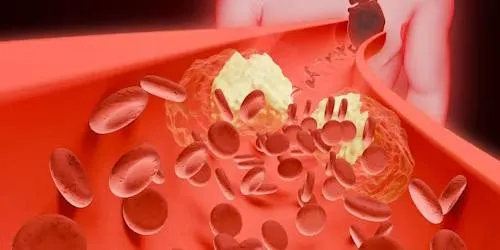
Rethinking Low Cholesterol: A Cardiologist Perspective
Rethinking Low Cholesterol: A Personal Reflection
In the field of cardiology, few topics have sparked more debate and confusion lately than the role of cholesterol in our health.
For decades, we’ve been taught to fear cholesterol—to see it as an enemy lurking in our blood, just waiting to clog an artery and steal our future. Many still argue that lowering cholesterol is essential to prevent heart attacks and strokes. Others, just as passionately, deny that cholesterol has much to do with these diseases at all.
As is often the case in medicine—and life—the truth probably lies somewhere in the middle.
A Journey of Changing Perspectives
Throughout my career, I have shifted from being a strong believer in aggressive cholesterol-lowering to a more balanced view. Today, I look at the whole person—their inflammation, insulin resistance, lifestyle, and genetics—not just a single lab number. This evolution didn’t come easily. It came from watching real patients, real families, and real outcomes that didn’t always match what the guidelines promised.
It is incredibly difficult to move people away from the idea that cholesterol is purely bad. We have been conditioned to associate high cholesterol with an early death. But cholesterol serves essential purposes in the body and lowering it too much can carry real harm.
Questioning the Evidence
Much of the evidence driving aggressive cholesterol-lowering comes from statin trials over the past 30 years—trials that often rely on data and interpretations that deserve a more critical look. This has created a kind of collective cognitive dissonance in medicine. Even when new evidence emerges, it can feel almost impossible to let go of a belief we’ve held for so long. I know this firsthand because I wrestled with it myself.
But if we want to serve people fully, we must be willing to question our assumptions.
The Essential Role of Cholesterol
Cholesterol is vital for cellular health and hormone production. Most of it is made inside our bodies, regardless of what we eat. That is a remarkable design—our cells know what they need. While statins and other medications can dramatically suppress this production, we must ask: at what cost?
The Risks of Low Cholesterol
Studies have shown that very low cholesterol levels are linked to higher risks of:
• Hemorrhagic stroke
• Respiratory disease
• Liver disease
• Certain cancers
There is what researchers call a U-shaped curve—where both very high and very low cholesterol levels are associated with more illness and earlier death. This is not just a curiosity buried in an academic journal. It is a reality I’ve seen in older patients whose health declined in unexpected ways after their cholesterol was pushed too low.
Diabetes: An Overlooked Consequence
One of the most significant concerns is the increased risk of type 2 diabetes from statins—up to 10% of people on long-term therapy may develop diabetes. This is not a trivial side effect. It has lifelong consequences.
Impacts on Mental Health
Low cholesterol also affects mental health. We know serotonin plays a central role in mood. When cholesterol falls too low, serotonin metabolism and receptor function may be disrupted. This can contribute to depression and anxiety—an often-overlooked cost that affects the whole person, not just their arteries.
Unique Risks for Women
Women, in particular, face added risks. Lower estrogen production with low LDL cholesterol increases osteoporosis and fractures. For an older woman, a hip fracture can be life-changing—and often life-shortening. Regular movement is one of the most powerful protectors against heart disease and losing that ability is a tragedy we must try to prevent.
Immune Function and Cancer Risk
Immune function also depends on cholesterol. Older adults already have less robust immunity. Why compound this vulnerability by suppressing cholesterol further?
Cancer is the second leading cause of death. If there is even a possibility that very low cholesterol contributes to higher cancer risk, we should be cautious rather than cavalier. G.I. cancers are on the rise. Prevention should be our shared mission.
A Call for Perspective
I don’t share this to dismiss the value of cholesterol management altogether. I share it because I care about the people behind these numbers. I have seen how single-minded focus on cholesterol can overshadow the bigger picture—chronic inflammation, metabolic dysfunction, social isolation, and stress. Statins do have modest anti-inflammatory benefits. But many other approaches can reduce inflammation without depriving the body of cholesterol’s essential roles.
Hope for Change
Sometimes I feel that educating fellow physicians about these nuances is even harder than educating patients. Cognitive dissonance is a powerful force, and no one is immune. Yet, I have faith in my colleagues’ compassion and curiosity. I believe we can evolve beyond the dogma.
We must look to the horizon with humility and hope. Our bodies are not broken by default. They are designed with an extraordinary capacity to heal, given the right environment. We don’t need to wage war on every molecule God put there for a purpose.
May we keep listening to our patients, to each other, and to the quiet wisdom that arises when we look beyond the numbers—and into the lives we are entrusted to protect.


